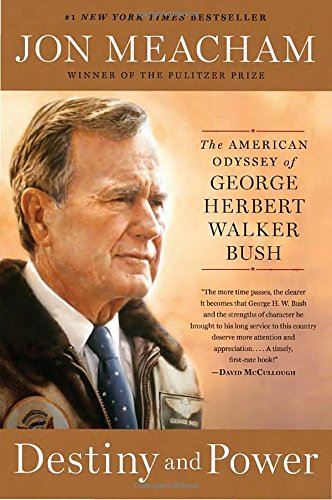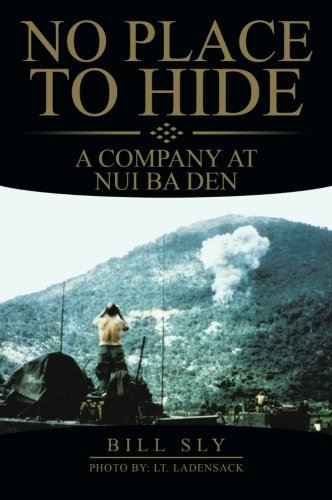Our Community
Get to know our community
Join Translation Journal
Click on the Subscribe button below to receive regular updates.
Ann Sherwin
Question and Answer
- What is your name?
- Ann Sherwin
- Where do you live?
- Raleigh, NC, USA
- What made you decide to become a translator or interpreter?
- Trained to teach German, but it wasn't offered in schools where I lived at the time. So I looked around for what else I could do with my language and discovered the American Translators Association.
- List one strength that you think sets you apart from your colleagues.
- ability to read old handwriting
- Name the one thing that you most enjoy in your translating or interpreting career.
- problem solving
- We all have worked on those not-so-perfect assignments. Write about one such assignment that was not ideal and what you learned from it.
- In my too-eager-for-work days, I accepted a small job in a technical field I knew nothing about. I ended up paying an editor more to check and fix my work than I had quoted for the project. Lesson: Stick with what you can do well.
- If you could go back in time to when you were just starting out as a translator or interpreter, what advice would you give to your younger self?
- Don't spread yourself too thin. Specialize in a credibly limited number of fields early on. Avoid low-bid contests. Regard colleagues as allies rather than competitors.
- Name one resource – such as a phone app, CAT tool, website, and so forth – that you find especially helpful in your translating or interpreting work.
- Billings, Mac app for timing and managing projects
- What's the best book you've read this year?
- Destiny and Power: The American Odyssey of George Herbert Walker Bush, by Jon Meacham
#1 NEW YORK TIMES BESTSELLER • NAMED ONE OF THE TEN BEST BOOKS OF THE YEAR BY THE WASHINGTON POST AND ONE OF THE BEST BOOKS OF THE YEAR BY The New York Times Book Review | Time | NPR | St. Louis Post-Dispatch
In this brilliant biography, Jon Meacham, the Pulitzer Prize–winning author, chronicles the life of George Herbert Walker Bush. Drawing on President Bush's personal diaries, on the diaries of his wife, Barbara, and on extraordinary access to the forty-first president and his family, Meacham paints an intimate and surprising portrait of an intensely private man who led the nation through tumultuous times. From the Oval Office to Camp David, from his study in the private quarters of the White House to Air Force One, from the fall of the Berlin Wall to the first Gulf War to the end of Communism, Destiny and Power charts the thoughts, decisions, and emotions of a modern president who may have been the last of his kind. This is the human story of a man who was, like the nation he led, at once noble and flawed.
His was one of the great American lives. Born into a loving, privileged, and competitive family, Bush joined the navy on his eighteenth birthday and at age twenty was shot down on a combat mission over the Pacific. He married young, started a family, and resisted pressure to go to Wall Street, striking out for the adventurous world of Texas oil. Over the course of three decades, Bush would rise from the chairmanship of his county Republican Party to serve as congressman, ambassador to the United Nations, head of the Republican National Committee, envoy to China, director of Central Intelligence, vice president under Ronald Reagan, and, finally, president of the United States. In retirement he became the first president since John Adams to see his son win the ultimate prize in American politics.
With access not only to the Bush diaries but, through extensive interviews, to the former president himself, Meacham presents Bush's candid assessments of many of the critical figures of the age, ranging from Richard Nixon to Nancy Reagan; Mao to Mikhail Gorbachev; Dick Cheney to Donald Rumsfeld; Henry Kissinger to Bill Clinton. Here is high politics as it really is but as we rarely see it.
From the Pacific to the presidency, Destiny and Power charts the vicissitudes of the life of this quietly compelling American original. Meacham sheds new light on the rise of the right wing in the Republican Party, a shift that signaled the beginning of the end of the center in American politics. Destiny and Power is an affecting portrait of a man who, driven by destiny and by duty, forever sought, ultimately, to put the country first.
Praise for Destiny and Power
"Should be required reading—if not for every presidential candidate, then for every president-elect."—The Washington Post
"Reflects the qualities of both subject and biographer: judicious, balanced, deliberative, with a deep appreciation of history and the personalities who shape it."—The New York Times Book Review
"A fascinating biography of the forty-first president."—The Dallas Morning News
"When we rank, reconsider, laud, or denounce past Presidents, living or dead, we are taking stock of our own times. In that sense, the vindication of George H. W. Bush is a reflection of what we know we've lost. Jon Meacham's new biography of Bush, Destiny and Power, makes that plain from its very first pages."—The New Yorker
"The story of the forty-first man to hold the office sheds light not only on the country we were, but the one we've become."—Los Angeles Times
Kamal
Question and Answer
- What is your name?
- Kamal
- Where do you live?
- Togo
- What made you decide to become a translator or interpreter?
- Passion for languages and keen to learn various issues
- List one strength that you think sets you apart from your colleagues.
- Passion
- Name the one thing that you most enjoy in your translating or interpreting career.
- meeting the need of the client
- We all have worked on those not-so-perfect assignments. Write about one such assignment that was not ideal and what you learned from it.
- My first debuit in a boot was not easy, I later learned that I needed to work more. When you are in translation and interpreting you don't stop learning.
- If you could go back in time to when you were just starting out as a translator or interpreter, what advice would you give to your younger self?
- To read a lot and be curious
- Name one resource – such as a phone app, CAT tool, website, and so forth – that you find especially helpful in your translating or interpreting work.
- linguee.com
- What's the best book you've read this year?
- No place to hide
No Place to Hide: Alpha Company at Nui Ba Den puts into words what few can imagine and even fewer have experienced--the harrowing and life-altering experience of facing deadly assaults from snipers. The U.S. Army's Alpha Company, deployed in Vietnam in 1969, followed orders sending it toward a mountain, Nui Ba Den. There they encountered North Vietnamese snipers, secure on higher ground, who subjected the company to two days' of unremitting attack. In the end, nine members of the company and two of Charlie Company who came to their aid lost their lives.
The author, Bill Sly, survived both the battle at Nui Ba Den and the Vietnam War. A college degree in history education and his military duties writing narratives to support awards of the Medal of Honor provided him with the background and expertise to bring to life his first-hand experience with the war and this particular engagement. In the pages of No Place to Hide, he tells the story of this company and its men who served, fought, and died and those who survived to remember and to remind others of the sacrifices of their comrades.
No Place to Hide: Alpha Company at Nui Ba Den honors the men who fought together, remembers the sacrifices of those who died, and preserves the history of the events it depicts.
Mehdi Lamouri
Question and Answer
- What is your name?
- Mehdi Lamouri
- Where do you live?
- Tunisia
- What made you decide to become a translator or interpreter?
- studying foreign langages and having a good average in the mother tongue languages. Translation let you know more about different cultures.
- List one strength that you think sets you apart from your colleagues.
- quick understanding
- Name the one thing that you most enjoy in your translating or interpreting career.
- playing with words
- We all have worked on those not-so-perfect assignments. Write about one such assignment that was not ideal and what you learned from it.
- At the geginnig I have a problem with phrasal verbs, but i find the suitable solution with the dictionary of this kind of verbs.
- If you could go back in time to when you were just starting out as a translator or interpreter, what advice would you give to your younger self?
- Be confident that you have great skills.
- Name one resource – such as a phone app, CAT tool, website, and so forth – that you find especially helpful in your translating or interpreting work.
- OneLook
- What's the best book you've read this year?
- The Art of Action

Examining the gap between what managers plan, what they do, and the outcomes they achieve, Stephen Bungay uses the nineteenth-century Prussian Army—and the unpredictable environment of the battlefield—to show business leaders how they can build more effective and productive organizations. Bungay provides a fresh look at how managers can turn planning into execution, and execution into results.
Nancy
Question and Answer
- What is your name?
- Nancy
- Where do you live?
- Argentina
- What made you decide to become a translator or interpreter?
- My love for languages, reading, and writing, and my curiosity.
- List one strength that you think sets you apart from your colleagues.
- Many colleagues might have my same strengths as well. I work as professionally as many of them. I especially put emphasis on writing skills, which today are often ignored, in favor of technological skills.
- Name the one thing that you most enjoy in your translating or interpreting career.
- Learning every day.
- We all have worked on those not-so-perfect assignments. Write about one such assignment that was not ideal and what you learned from it.
- I had many no-so-perfect assignments. I have always learned from them that they teach you way more than the almost perfect ones.
- If you could go back in time to when you were just starting out as a translator or interpreter, what advice would you give to your younger self?
- Be a bit more daring.
- Name one resource – such as a phone app, CAT tool, website, and so forth – that you find especially helpful in your translating or interpreting work.
- Trados
- What's the best book you've read this year?
- For my Master's Degree in Latin American Studies: Naturaleza, sociedad y alienación, by Guido Galafassi.

